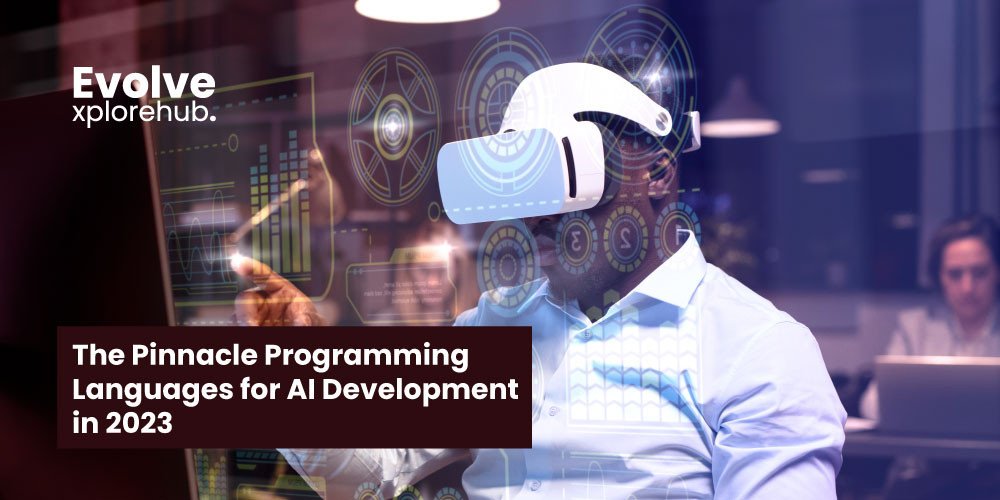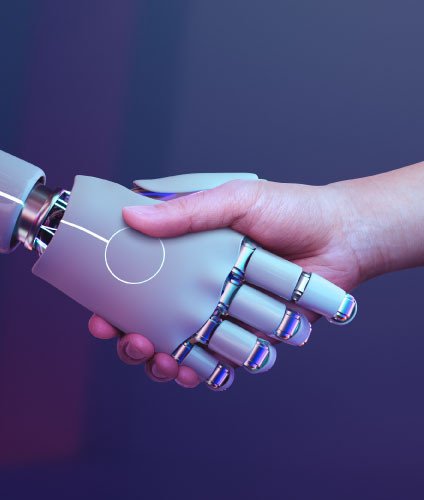The Best Programming Languages for Artificial Intelligence (AI) Development in 2023

Artificial intelligence (AI) is not merely a buzzword; it is a profound force reshaping our world. As the boundaries of innovation continue to expand, software development is at the forefront of this transformation. AI-driven software is now ubiquitous, necessitating careful consideration when selecting the optimal programming language for the task at hand. In the ever-evolving landscape of AI development, here are the top 5 programming languages that stand as titans in 2023.
- Python: The Unstoppable Powerhouse
Python reigns supreme as the crown jewel of AI development. It boasts unmatched popularity due to its accessibility and an extensive library of machine learning and deep learning tools. Python's simplicity in both learning and usage makes it a go-to choice for developers of all backgrounds. Whether you're a novice or an expert, Python's versatility empowers you to navigate the intricate world of AI effortlessly.
- Java: The Stalwart of Large-scale AI
While Java might not be as beginner-friendly as Python, its robustness and power make it a heavyweight contender for large-scale AI projects. Java's ability to handle complexity with grace and scalability gives it a distinct advantage in tackling monumental AI undertakings. When the stakes are high and the project colossal, Java is the trusted companion.
- C++: The Speed Enthusiast's Dream
For AI applications demanding lightning-fast performance and efficiency, C++ takes center stage. Renowned for its high-performance capabilities, this programming language excels in computationally intensive tasks. Whether it's real-time applications or resource-hungry algorithms, C++ is the reliable choice for developers with a need for speed.
- Julia: The Rising Star of AI
Julia, a relative newcomer, has been gaining rapid recognition within the AI community. Its speed, expressiveness, and a burgeoning library of machine learning resources make it a contender to watch. As Julia continues to evolve, it stands as a testament to the ever-evolving nature of AI development.
- JavaScript: The Web Developer's Surprise
JavaScript, often associated with web development, has made surprising inroads into AI development. Thanks to its vast array of machine learning libraries and compatibility with web frameworks, JavaScript is finding its place in the AI landscape. It is ideal for AI projects with web-based interfaces or those seeking to leverage existing web development expertise.
Selecting the perfect programming language for AI development hinges on various project-specific factors:
-
Project Complexity: For simpler tasks, Python's approachability shines, while complex undertakings may demand the power of Java or C++.
-
Project Scale: Large-scale projects necessitate languages designed for scalability, with Java being a prime choice.
-
Speed and Efficiency: Real-time applications or computationally intensive tasks favor languages like C++ for their unmatched speed and efficiency.
-
Library and Framework Availability: The richness of libraries and frameworks varies across languages, with Python having an extensive ecosystem.
-
Developer Preferences: Developers have their preferences, and comfort with a language can impact productivity. Thus, it's crucial to align language selection with the team's skills and inclinations.
In addition to the top contenders, a handful of other languages are occasionally employed in AI development:
-
R: Renowned for its statistical prowess, R is a favored choice for data analysis and machine learning.
-
Lisp: Recognized for its expressiveness and adaptability, Lisp is a functional language often employed in AI projects.
-
Prolog: As a logic programming language, Prolog finds its niche in natural language processing tasks.
The choice of a programming language for AI development is not a one-size-fits-all decision. Rather, it's a complex, project-specific evaluation that factors in the project's requirements, developer expertise, and the availability of tools and resources. In the age of AI, the selection of the right programming language is the cornerstone upon which innovation thrives.




